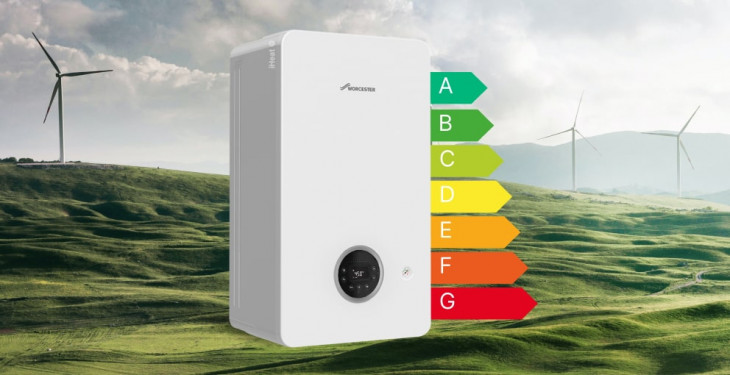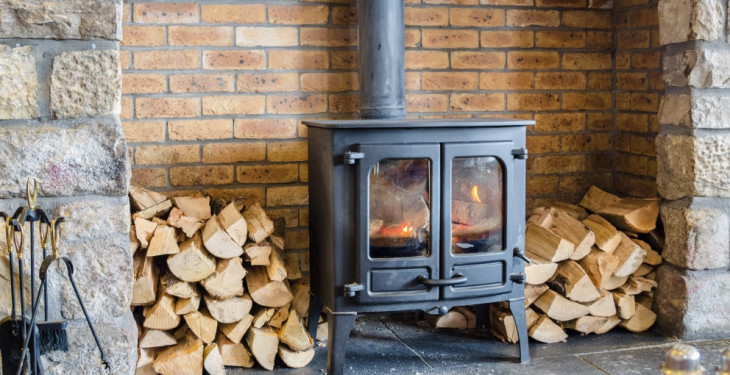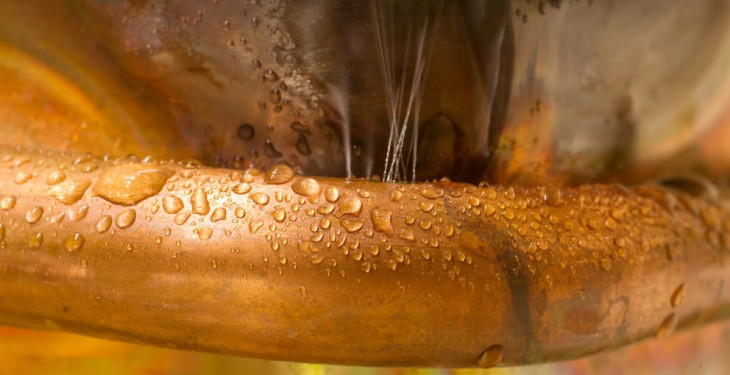

Written by Stephen Day
Gas Safe Engineer
Updated: 2nd February, 2026
You may be wondering when the best time to replace your old, inefficient boiler is, and while anytime is a good time, summer especially presents a great opportunity to upgrade to a new and efficient boiler.
Get a new boiler quote, save up to £550 per year (0% APR available).
In this blog we’ll take a look at why summer is the best time to replace your boiler, and what the benefits of upgrading to a newer system are.
When it comes to replacing a boiler, homeowners may wonder if there is a more cost-effective time to do so. One option may be to replace the boiler in the summer months.
This is because demand for boiler repairs is typically lower during this time, which could result in better rates from contractors.
Additionally, replacing a boiler in the summer could make it easier to plan the necessary work with an accredited engineer. The parts, labour, and boiler may also be cheaper during this time, as suppliers may be looking to reduce inventory.

However, it is important to note that the cost of a new boiler will depend on a range of factors, including the size of the home and the type of boiler being installed.
Replacing a boiler can have a range of benefits, including reduced energy bills and increased control over the heating system.
Modern boilers are also designed to be more efficient, which can help to reduce overall energy consumption. In addition, a new boiler may come with a manufacturer warranty, providing peace of mind for homeowners.
Ultimately, the decision to replace a boiler should be based on individual circumstances, including the age and condition of the existing system, as well as the homeowner's budget and energy goals.
Replacing a boiler is a significant investment for any homeowner, but the cost can vary depending on the time of year. Summer is often the best time to replace your boiler, and here's why:
During the winter months, boiler repair and replacement services are in high demand. This means that heating engineers may have a packed schedule, and you may have to wait longer for an appointment. In contrast, during the summer months, demand for boiler services tends to drop off.
This means that heating engineers are often more available and can offer more flexible appointment times. Additionally, because there is less demand, you may be able to negotiate a better price for your boiler replacement.
Many heating engineers offer off-peak rates for boiler installation services during the summer months.
This means that you may be able to get a better deal on the cost of labour. Off-peak rates are often available during weekdays, so if you have a flexible schedule, you may be able to take advantage of these lower rates.
If you wait until winter to replace your boiler, you may have to go without heat or hot water for a few days while the installation is completed. This can be inconvenient and uncomfortable, especially if the weather is cold.
However, if you replace your boiler in the summer, you are less likely to experience downtime. This means that you can enjoy the benefits of your new boiler without any disruption to your daily routine.
Modern boilers are also more efficient than older models, which can help to reduce your energy bills. They are also more environmentally friendly, as they produce fewer emissions.
Additionally, modern boilers often come with advanced features, such as smart controls, which can help you to manage your heating more efficiently.
Planning a replacement? Our new boiler cost guide can help you budget effectively.
Modern boilers have many benefits over older models. They are more energy-efficient, have a reduced carbon footprint, and offer improved performance and reliability. Here are some of the main advantages:
New boilers are designed to be highly energy-efficient, with an efficiency rating of at least 80%.
High-efficiency models can reach up to 98.5% efficiency. This means that less energy is wasted during the heating process, resulting in lower energy bills and a reduced carbon footprint.
Naturally, the newer a gas boiler system, the more efficient it is due to engineering and design progression.
Outdated or failing systems could be the reason for your shock when seeing your monthly energy bills.
Most UK boilers are running at 80% energy efficiency with some antiquated models operating at 60% or less! These sub optimal levels of output are as avoidable as they are shocking.
Age of Boiler | Efficiency Percentage | Efficiency Rating |
0+ Years | 90% + | A |
10+ Years | 85% + | B/C |
15+ Years | 80% + | C/D |
20+ Years | 70% + | E/F |
25+ Years | 60% + | G |
The direct correlation between boiler age and its efficiency is clear to see in the newer systems’ ErP, so it may be worth upgrading your model to an energy efficient boiler. check out our handy guide on the most energy efficient boilers.

Modern boilers are designed to be more environmentally friendly than older models.
They produce fewer emissions, which means that they have a reduced carbon footprint. This is good news for the environment and can help to reduce your household's impact on the planet.
New boilers are designed to be more reliable and to offer improved performance over older models.
They are less likely to break down, which means that you are less likely to be left without heating or hot water. They are also quieter and easier to use, making them a great choice for modern households.
Combis or combination boilers, combine all components and aspects of a heating system (central heating and hot water production) into one succinct and powerful unit.
Their economic size, quick flow rates and dual functionality means combis are extremely efficient and effective when heating a multitude of property sizes, being best suited for small to medium sized homes with 1-2 bathrooms.
System boilers perform best in homes with a high hot water demand, specifically either larger properties with a higher number of residents or properties with two or more bathrooms.
System boilers store hot water in a separate cylinder which provides constant flow access but requires additional (minimal) storage space.
System boilers can service multiple flow outlets at one time, meaning no one in a larger home would be standing around waiting for a shower.
A heat only boiler provides the heat for a home's central heating system and hot water cylinder. A heat only boiler is suited to servicing larger properties with multiple bathrooms/radiators or a business premises with a high water demand.
Heat only boilers do require sufficient installation space within a property, as they use two storage tanks (feed & expansion) as well as the aforementioned hot water cylinder.
Although a combi is generally considered more space saving, a modern heat only boiler is still compact and can supply more bathrooms with hot running water than a combi can.
Even if your current boiler isn’t a combi and operates on a different system, you can still convert to a sleek and powerful combi.
System, heat only (regular) and back boilers are all capable of being converted into a combi that will both boost your heating and reduce your bills.
Firstly, some due diligence needs to be carried out, combi boilers run off the mains water supply, so you need to ensure the pressure from your cold tap is sufficient.
The cold tap is the key indicator of a combi’s suitability as often system and regular boilers have pumps on the showers to increase pressure, and if they should be converted into a combi, these pumps would be removed along with the property’s hot water tanks.
Combi conversions which require a full system change will take more time and therefore cost more money up front, but may save you more long term.
An old, inefficient back boiler can actually be converted to a combi or system boiler; systems can work out cheaper in terms of the conversion due to a lot of the pipework remaining the same.
However, most people opt for the combi conversion as an upgrading of the entire system could be more efficient in the long run, and may ensure less future faults, reducing repair or maintenance costs.
At iHeat we advise that every installation and conversion is a unique undertaking and time frames are intended only as a guide - for a back boiler conversion carried out by a Gas Safe engineer we recommend you should allow for up to two days of work.

If your boiler is showing signs of serious degradation or function impairment, it’s time to replace it.
If possible, summertime is the best time to replace a boiler as you’re less reliant on central heating in hotter months and engineers are usually less busy.
Anytime a boiler is between 10-15 years old, you should look into having it replaced, even if it’s only showing signs of general wear and tear, component failure or performance degradation often becomes increasingly likely.
Apart from the obvious complete breakdown, there are several signs to keep on the lookout for that may be warning you that your boiler is on its way out.
Leaks can be fixed depending on their severity, but should always be treated as a priority issue that if sizeable or fast flowing can be a major problem, and needs rectifying ASAP.
Repeated error codes can also be a cause for heating concern especially if they result in a boiler being ‘locked out’ (system forced shut down) for damage limitation purposes.
If your boiler regularly needs some kind of maintenance, or performs sub-optimally most of the time there may be serious component issues.
You will be given a specific quote from the boiler installation company based on:
The type of home you have (i.e. terraced, semi-detached, etc.)
How many bedrooms you have
How many bathrooms you have
Your postcode and specific location
Overall, if you are considering replacing your boiler, it is worth investing in a modern, energy-efficient model. Not only will this help to reduce your energy bills and carbon footprint, but it will also provide you with improved performance and reliability.
Any boiler issue is obviously important to get remedied as soon as possible, but in a triage system of urgency, some issues take precedence.
You can consider any of the following an emergency boiler matter:
Suspected gas leak (natural gas or carbon monoxide)
No heating or hot water during winter (especially important if you have children in the home)
Water is streaming out of a boiler or pipe at a very quick rate

Headaches
Dizziness
Nausea and vomiting
Tiredness and confusion
Stomach pain
Shortness of breath
Confusion
Irregular heartbeat
Seizures
If you think you or someone who lives with you can smell gas, evacuate the property and Immediately call the National Gas Emergency Service number on 0800 111 999.
As a modern, online boiler installation company, iHeat will take away the burden of all of the above to make replacing your old broken boiler as easy as possible.
First of all, Instead of carrying out potentially disruptive and delaying location assessments, at iHeat we aim to make the quotation process as quick and efficient as possible.
Last updated: 2nd February, 2026

Written by Stephen Day
Gas Safe Engineer at iHeat
Stephen Day is a Gas Safe registered and FGAS certified engineer with over 20 years of hands-on experience in the heating, cooling, and renewable energy industry, specialising in boiler installations, air conditioning, and heat pump systems.
LinkedInArticles by Stephen Day are reviewed by iHeat’s technical team to ensure accuracy and reliability.

19th February, 2026
Selecting the appropriate boiler for your London home involves understanding the different...
 Read Article
Read Article

19th February, 2026
A typical Annual Boiler Service includes a visual inspection to identify any obvious fault...
 Read Article
Read Article

19th February, 2026
Boiler servicing comprises a set of inspections and tests conducted by a qualified enginee...
 Read Article
Read Article
No obligation. Takes less than 60 seconds.